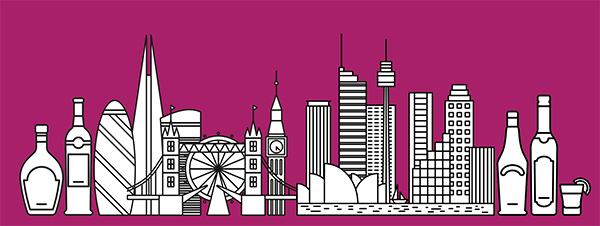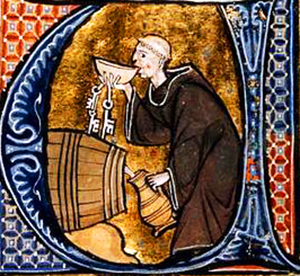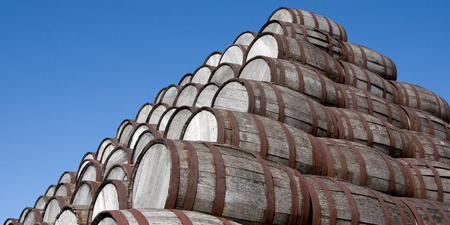Blog
Senate Fails California, Passes Last-Call Bill; Time to Rally the Assembly
 In a senseless and short-sighted 27-9 vote, the California State Senate approved SB 384, the bill that would keep bars open to 4 a.m. and undermine public safety across the state. The vote came just days after the Senate Appropriations Committee agreed, following closed-door meetings, to release the bill despite the millions in state costs it would incur. Now it is up to the citizens of California to make their Assembly members stand up and stop the bill.
In a senseless and short-sighted 27-9 vote, the California State Senate approved SB 384, the bill that would keep bars open to 4 a.m. and undermine public safety across the state. The vote came just days after the Senate Appropriations Committee agreed, following closed-door meetings, to release the bill despite the millions in state costs it would incur. Now it is up to the citizens of California to make their Assembly members stand up and stop the bill.
“The Senate should be embarrassed that they let this bill even make it to floor,” said Michael Scippa, Alcohol Justice Public Affairs Director, “let alone that they passed it.”
Extending last call times pose a number of hazards to public well-being. First and foremost, they extend drinking times and bring the most intoxicated people together in close proximity. This leads to increases in incapacitated drivers, crashes, violence, and victimization, as well as noise, nuisance, and property damage in the neighborhoods near late-closing bars.
More subtly, it stresses the resource of ERs, medics, and law enforcement personnel, who now have to spend more time dealing with the aftermath of drinking with no time to reset. It burnishes the tax coffers of urban areas willing to extend hours while severely impacting small suburban municipalities with damage and fatalities “party commuters” driving home. And with workaday commuters traveling ever longer hours, it sends impaired drivers headlong into rush hour traffic.
Most insidious, however, is the fact that this bill really only creates a major boon for large nightlife promoters while creating a pressure for smaller bars to stay open whether or not they want to. By stripping a simple and sensible public health regulation—one that has stood for decades without any substantive complaints—California shows a willingness to crumple to the slightest pressure from wealthy lobbies even while public health services are constantly cut.
The Senate may have failed in its duty to represent the interests of California citizens, but the fate of SB 384 is far from determined. “The Senate may have ignored science and common sense,” Mr. Scippa said, “but there is still time for the grown-ups in the room to act.”
Alcohol Justice urges concerned Californians to contact their member of the Assembly and make it clear how 4 a.m. last call times hurt the community. California needs politicians to stand up against alcohol money and preserve public health and safety.
TAKE ACTION to contact your member of the Assembly and tell them to Stop 384.
READ MORE about the moral bankruptcy and manipulative cynicism behind SB 384.
READ MORE about the harms from extending last call times.
Major UK/Australian Report Confirms: Nothing Good Happens After Midnight
Restricting access to alcohol—including limiting hours of sale—changes both the physical access and the psychology of alcohol use, researchers say.

The United States faces constant erosion of alcohol access policies thanks to the political influence of the alcohol industry. American legislators are not alone in facing this soft-power onslaught. In 2005, England and Wales allowed 24-hour liquor sale licenses, a dramatic change from their previous 11 p.m. last-call times. Meanwhile, the Australian parliament is spinning its wheels trying to enact liquor law reforms, with most meaningful legislation coming at the local level. A powerful new joint report from the Foundation for Alcohol Research and Education (FARE) and the Institute of Alcohol Studies (IAS) lays out some straightforward and effective access policies for Australia and the UK. These policies do not just set a practical standard for alcohol regulation in those countries, they encompass a set of best practices for all regulators worldwide.
FARE/IAS make the important case that alcohol access restrictions' power do not derive from denying alcohol to interested purchasers. Instead, they change the context of alcohol use. If customers have to go to a specific store to buy liquor, as opposed to purchasing gin along with their Cheerios, it both reduces impulse purchases (and consequently impulse use) and creates a psychological firewall that can reduce overall drinking. Moreover, access laws meant to address one alcohol harm often bleed over on to others. The report notes that policies meant to address intoxicated driving also seem to depress domestic violence—the awareness of drinking as potentially dangerous inspires self-control.
With this in mind, the authors recommend certain forms of alcohol sale limitations as "best buys," including:
- ending the sales of alcohol for off-site consumption at 10 p.m.
- ending sales for on-site consumption at midnight
- stronger regulation and monitoring of off-site sales, including "quarantining" alcohol away from other food products
- improve community access to regulators and licensing bodies
- requiring alcohol license applicants responsible for proving their business will cause minimal harm, rather than having to wait until harm occurs to pull a license
- replacing industry-designed and industry-sponsored voluntary "regulations" with evidence-based policies
The report also includes a scorecard of existing policies throughout Australia and the UK, grading policies on body of evidence for effectiveness, resource intensiveness, and ease of institution. As the authors point out, the answers are there, if politicians will just show the will to embrace them.
Congress Plans $321 Giveaway to Big Alcohol
 Political junkies are already familiar with the term “reverse Robin Hood,” wherein fiscal policy seems to take money from the poor and give it to the rich. A bill currently before Congress, S. 236 / H.R. 747, elaborates on that theme with a “reverse Friar Tuck,” wherein those profits go to the richest alcohol companies at the expense of American citizens who have been impacted by drinking.
Political junkies are already familiar with the term “reverse Robin Hood,” wherein fiscal policy seems to take money from the poor and give it to the rich. A bill currently before Congress, S. 236 / H.R. 747, elaborates on that theme with a “reverse Friar Tuck,” wherein those profits go to the richest alcohol companies at the expense of American citizens who have been impacted by drinking.Alcohol Justice has detailed elsewhere how S. 236 / H.R. 747, aka the Craft Beverage Modernization and Tax Reform Act (CBMTRA), hides behind the lie of fostering small business growth. In fact, the benefits to small brewers and distillers are nominal. A new AJ report, however, gives dollar estimates of the industry giveaways. Among the most egregious fiscal giveaways:
• At least $321 million of lost revenue.
• $50 million to 7 “craft” brewers that produce over 2 million barrels annually.
• $128 million to distillers producing over 100,000 proof-gallons—250% more than distillers under 100,000 proof-gallons receive.
• $18 million lost in undermining a tax break meant to reward makers of lower ABV wines.
• An extension of credits meant for small wineries to those producing up to 620,000 gallons of wine.
“This dishonest federal measure is being portrayed as an incentive for small craft brewers,” said Bruce Lee Livingston, Executive Director/CEO of Alcohol Justice. “But the real winners are the largest beer and spirits producers in a race to cut their already ridiculously low tax rates.”
As significant as they are, these figures reflect only the giveaways for domestic alcohol production. Further language guts the government's ability to tax imports. Alcohol Justice has prepared a preliminary report on the financial impact of the CBMTRA, but has only scratched the surface. The organization urges everyone concerned with promoting public health to oppose this bill and stand up for public health.
TAKE ACTION to tell Congress to pick public health over Big Alcohol.
READ MORE about Alcohol Justice’s stand against S. 236 / H.R. 747.
READ MORE about the costs of this bill and the opportunities for charge-for-harm it takes away.
Federal Giveaway to Major Breweries Makes "Craft" Beer Meaningless
 What makes something a craft? Is it the painstaking effort put into making one-of-a-kind, irreplaceable objects or experiences? Is it the individuality of the craftsman, controlling every aspect of the process? Or is it the ability to generate a quarter of a billion dollars in yearly revenue while duping politicians with faux-rustic design aesthetics? Judging by S 236/HR 747—the Craft Beer Modernization and Tax Reform Act, a federal bill that seeks to “modernize” alcohol excise taxes the same way Ford would modernize its fleet by introducing a Model T—it’s the latter.
What makes something a craft? Is it the painstaking effort put into making one-of-a-kind, irreplaceable objects or experiences? Is it the individuality of the craftsman, controlling every aspect of the process? Or is it the ability to generate a quarter of a billion dollars in yearly revenue while duping politicians with faux-rustic design aesthetics? Judging by S 236/HR 747—the Craft Beer Modernization and Tax Reform Act, a federal bill that seeks to “modernize” alcohol excise taxes the same way Ford would modernize its fleet by introducing a Model T—it’s the latter.
Alcohol Justice already criticized the act for offering a tax break meant to incentivize lower-ABV wine to vintners who make no such effort. But as befits a national bill, the Act takes a truly comprehensive approach to bad tax policy. The act seeks to offer a tax break to hugely wealthy brands such as Samuel Adams ($215 million in 2015) and Lagunitas ($200 million in 2015). These brewers traffic on craft-beer cache while enjoying economies of scale unmatchable by a local backyard hophead. Lagunitas is even going on a buying spree, obtaining other craft labels. But they still brew under 6 million barrels per year, the threshold set by the act to qualify for a break.
These are clearly not businesses that need help, especially not in an era when consolidation seems to inevitably lead to megabrewers able to wield formidable economic and political clout. Indeed, Lagunitas has already joined forces with international heavyweight Heineken. This bill will only accelerate the process, giving more spare change to these “mega-craft” operations to monopolize shelf space and buy out smaller labels.
Perhaps creating another wave of megalithic alcohol producers is what the bill’s sponsors (Democrat Ron Wyden and Republican Erik Paulsen) mean by “modernizing”. In every other way, the bill continues the steady degradation of federal charge for harm policies. The federal alcohol excise tax has remained the same since 1991, despite the Congressional Budget Office’s yearly suggestion that it be raised. Nonetheless, drinking costs the United States around $250 billion annually. If anything, that is the true craft in beer: its lobby’s meticulous ability to avoid responsibility or make amends for its products harms.
Update 4/9/2017: This story was originally posted on April 27, 2017. On May 4, 2017, Heineken completed its buyout of of Lagunitas, presumably rendering Lagunitas ineligible for tax breaks but further calling into question the significance of the term "craft brew."
TAKE ACTION to keep Congress from double-dealing on microbrewers and giving free money to Big Alcohol.
READ MORE about SB 236/HR 747’s reckless undermining of effective public health policy.
READ MORE about Charge for Harm.
More Articles ...
Help us hold Big Alcohol accountable for the harm its products cause.
| GET ACTION ALERTS AND eNEWS |
STAY CONNECTED    |
CONTACT US 24 Belvedere St. San Rafael, CA 94901 415-456-5692 |
SUPPORT US Terms of Service & Privacy Policy |


